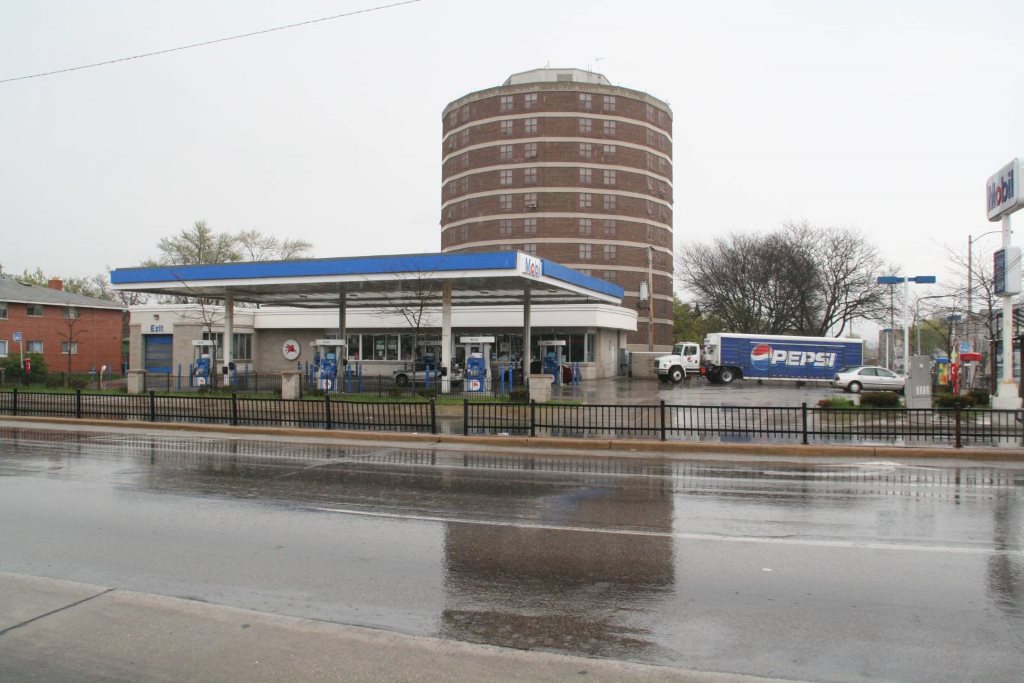High Gas Prices Led to a Decline in Sprawl
All the city news you can use.
Every day at The Overhead Wire we sort through over 1,500 news items about cities and share the best ones with our email list. At the end of the week, we take some of the most popular stories and share them with Urban Milwaukee readers. They are national (or international) links, sometimes entertaining and sometimes absurd, but hopefully useful.
Cities starting to recognize van lifers: The cost of housing is skyrocketing around the country, but especially in places such as Colorado’s resort towns. To avoid the high cost of an apartment on a limited wage, many residents have resorted to van life, purchasing a van to live in that’s much cheaper than renting a home. But many of these resort towns prohibit overnight parking, limiting their own workers from living close by after they’ve already limited their housing options. (Kelly Bastone | 5280 Magazine)
High gas prices led to a decline in sprawl: A new study published in the journal Environmental Research Letters has tied increasing gas prices to the reduction of land used for sprawling development in this century compared to the last two decades of the 20th century. The slowdown they argue, saved about seven million acres of forest and agricultural land from development and that an .03 cent increase in gas taxes reduces land development rates 2.84% per year. (Sarah DeWeerdt | Anthropocene Magazine)
Minneapolis renter law could allow for first purchases: Local activists in Minneapolis have been pushing for a new law that would allow renters to purchase homes they live in if the landlord decided to sell. The law, called the Tenant Opportunity to Purchase Act (TOPA), would notify tenants of a landlord’s move to sell a building, and allow the tenant first right of refusal to purchase, or the assignment of those rights to a third party vetted by the city. (Morgan Baskin | Mother Jones)
Texas Governor trying to kill a road diet project: The transfer of a stretch of state highway to the City of San Antonio is expected to be reversed six years after it was approved by TXDOT. Millions of dollars have been spent in planning for a road diet, tree planting, and improved pedestrian and bike access for the road in an area of redevelopment. Many believe the Texas Governor himself complained about the loss of lanes and is pulling strings to stop the project in fear something similar will happen in Austin. (Rick Casey | San Antonio Report)
Quote of the Week
The consequences [of a traffic fine] are proportionally ‘equally severe’ to all. The day fine system can be thus seen to be more equal and effective than a system where the amount of fine is fixed.
–Katariina Paakla, a senior specialist with Finland’s Department of Criminal Law in the Atlantic discussing progressive traffic fines.
This week on the podcast, I talk to Tina Rosan, associate professor at Temple University, and Stephen Wheeler, professor at UC Davis, about their new book “Reimagining Sustainable Cities: Strategies for Designing Greener, Healthier, More Equitable Communities.”
Want more links to read? Visit The Overhead Wire and signup.
Urban Reads
-
Congestion Pricing Cuts Air Pollution in New York City
 Dec 14th, 2025 by Jeff Wood
Dec 14th, 2025 by Jeff Wood
-
We Think We Love to Drive. But Do We Really?
 Dec 7th, 2025 by Jeff Wood
Dec 7th, 2025 by Jeff Wood
-
Can Scott Wiener Tackle America’s Housing Crisis?
 Nov 23rd, 2025 by Jeff Wood
Nov 23rd, 2025 by Jeff Wood





















